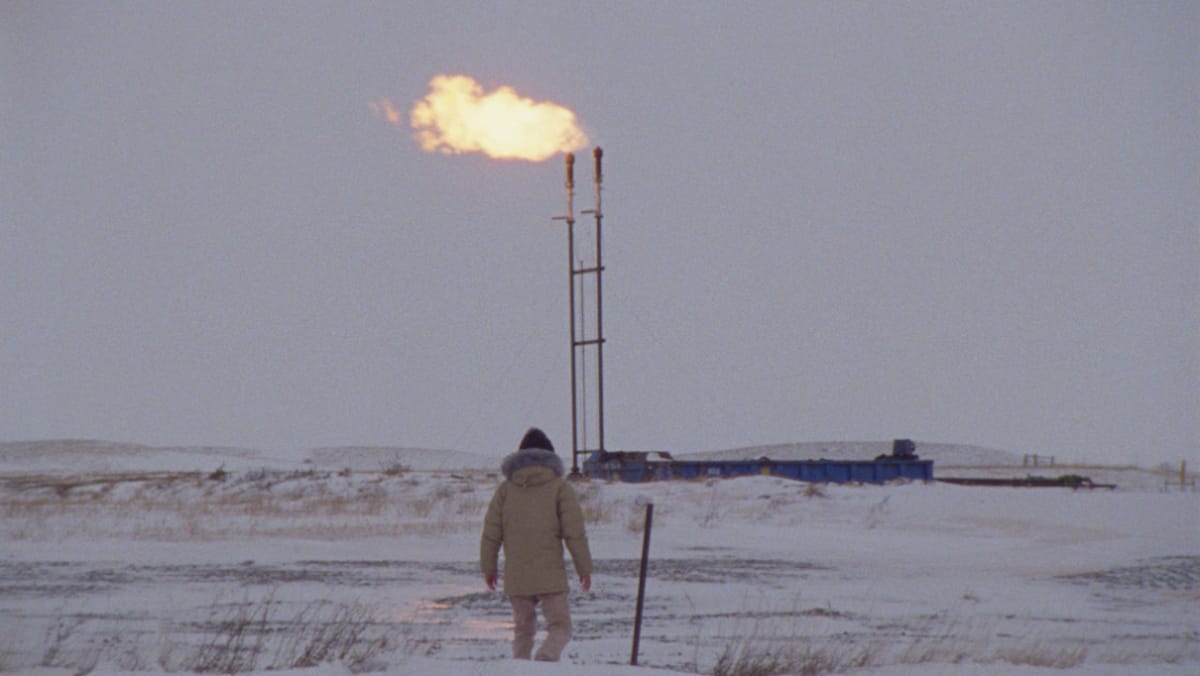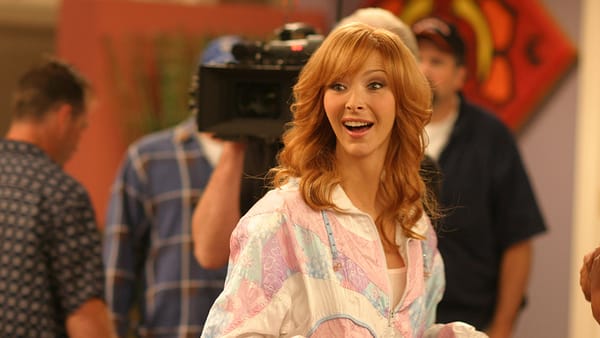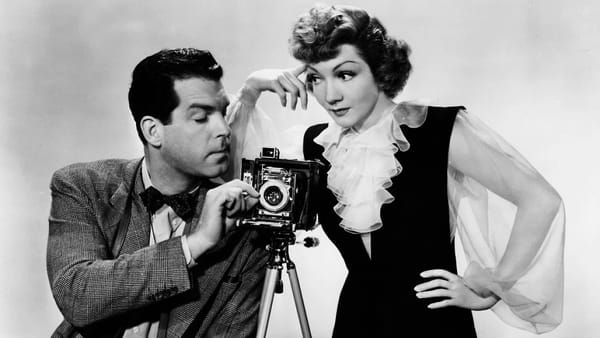"The aspiration is the collective action"

Director Daniel Goldhaber on his film How to Blow Up a Pipeline
In August of 2003, a few months after George W. Bush’s “Mission Accomplished” speech, the Pentagon’s Directorate for Special Operations and Low-Intensity Conflict, an anti-guerilla task force, circulated a flier to officers and civilians advertising a film screening:
“How to win a battle against terrorism and lose the war of ideas. Children shoot soldiers at point blank range. Women plant bombs in cafés. Soon the entire Arab population builds to a mad fervor. Sound familiar? The French have a plan. It succeeds tactically, but fails strategically. To understand why, come to a rare showing of this film.”
The film in question was Gillo Pontecorvo’s The Battle of Algiers. In the first decades of the 21st century, aging Boomer filmmaker after aging Boomer filmmaker attempted to reckon with the Left’s long post-60s hangover. Rueful lookbacks such as Good Morning, Night, The Wind That Shakes the Barley, and United Red Army, by redoubtable pinkos such as Marco Bellocchio, Ken Loach, and Koji Wakamatsu, to say nothing of epics of decline like Terror’s Advocate and Carlos and Che, all reckon, implicitly, with the question of how a revolutionary artist’s film about violent struggle could have been absorbed into the counterinsurgency doctrine touted by bipartisan neoliberal consensus. (While New York City’s film critics celebrated the 40th anniversary of 1968 by writing up revival screenings La Chinoise and Robert Kramer, the political reporters dug into the alleged formative influence of former Weather Underground domestic terrorist Bill Ayers on Democratic nominee Barack Obama. We should have been so lucky!)
Following the incomprehensible-to-Americans shock and trauma of 9/11, direct action was elided, at least in mainstream understanding, into religious terrorism, and films treating political violence seriously as praxis in the present tense struggled to break through the fog of Manichaeism swirling around Bush and his vocabulary of “evildoers.” Suicide-bomber movies were especially far outside the Overton Window. Paradise Now is all anguished talking points in search of an answer to the question Why? that arthouse moviegoers would find palatable, while Julia Loktev’s clammy, magnificent Day Night Day positioned itself above politics (“Come on—any idiot can imagine why somebody might become a suicide bomber in Times Square. We all read newspapers. We know this.”) in offering a stripped-down existential procedural. Later, in Nocturama, Bertrand Bonello would depict youthful rebellion with the same, welcome detachment from the hysterical affect of the Bush years — but also with a similar, severe detachment from any red-blooded sense of engagement, conviction, or hope.
A much-needed reframing of our cinematic horizon of political possibility comes courtesy of a filmmaker from the same generation as the founders of the Sunrise Movement. In Daniel Goldhaber’s How to Blow Up a Pipeline, adapted from the nonfiction tract by Andreas Malm, a motley gang of zillennial activists from different backgrounds come together in Texas’s Permian Basin over the Christmas holidays to detonate homemade explosives along an oil pipeline — at strategic points selected to minimize ecological and other collateral damage — and then get away clean.
Goldhaber’s previous film, Cam, demonstrated a digital native’s fluency with internet folkways. In How to Blow Up a Pipeline, the filmmaker’s many hours of doomscrolling pay off in the form of characters who realistically embody the arguments at play in Left-leaning circles, often by annoyingly talking past each other in soundbites presumably picked up from or workshopped in their own personally curated feeds. The film was not easy to finance, Goldhaber tells me, but easy to cast; the kids are all right, and include Ariela Barer as Xiochitl and Sasha Lane as Theo, childhood friends radicalized by personal experiences of ecological apartheid; Jayme Lawson as Theo’s girlfriend Alisha, an economically precarious community-nonprofit volunteer and reluctant coconspirator; Forrest Goodluck as Indigenous self-taught bomb-maker Michael; Jake Weary as Southern-friend Dwayne; Kristine Froseth and Lukas Gage as trust-fund crusties Rowan and Logan; and Marcus Scribner as college kid Shawn.
Conditions beget characters. Given that the film is adapted from a work of nonfiction, the team is a disparate and diverse group, each bringing their own skillset forged in a different part of an earth in crisis. As such, they reminded me a lot of the Benetton-colored eco-warriors of Captain Planet and the Planeteers, the Ted Turner animated edutainment of the early 1990s. And like that superhero cartoon, How to Blow Up a Pipeline launders its politics (which are more radical than Ted Turner’s) through unapologetically formulaic genre thrills. Goldhaber describes the movie — with its snaking tracking shots, cliffhanger cuts, and pulsing, purposeful score — as “a commercial heist film.”
When their powers combine, the result is a film that Goldhaber acknowledges to be, if not a fantasy, at least “aspirational,” balancing principle with provocation and prodding its audience to engage with the question of what must be done, and how it can be done ethically and efficiently.
In keeping with the collectivism it advocates, How to Blow Up a Pipeline is, per its credits, “a film by” writer-director-producer Goldhaber, actor-writer-producer Barer, writer-executive producer Jordan Sjol, and editor Daniel Garber, though Goldhaber is an eloquent mouthpiece for its ideas, as he demonstrated in this talk conducted shortly before the film’s… explosive world premiere at the Toronto International Film Festival, where Neon acquired its U.S. distribution rights. How to Blow Up a Pipeline will be released in theaters in the U.S. and the UK next year.
Let’s start with Nocturama, which you quote in the film’s first shot. We talked a little before today about that film’s politics; do you think it’s conservative?
I love Nocturama, but it’s ultimately about a group of characters being crushed by the arm of the state. I think that that is very accurate. I think that that is often what happens to progressive movements. But, when you think about what the value of storytelling sometimes is, it’s to imagine a different world that has different consequences — you’re allowed to imagine an aspirational world. That’s part of the promise of Hollywood. Movies about progressive causes are almost always tragedies, almost always about failure. I was interested in a movie about a progressive group succeeding.
The success that they have isn't necessarily some sort of grand political success. The success that they have is that they come together and do something that is truly radical. Something that has pros and cons to it, which are fiercely unpacked in the movie. But I think the aspiration of the movie is the collective action, how fully thought out it is.
I don’t necessarily disagree with the ultimate ideas behind Bonello’s film — I think it’s “conservative” in the sense of, “Why are we telling this story again?” It’s also in part the way I feel about Judas and the Black Messiah — which I love, which I think is a great film, but it’s a tragedy. I think that that’s part of the reason that it gets made today, and that it has the mainstream reception that it has. There’s this sneaking thing in the back of my mind like, “Is this movie on some level discouraging you? Well, it doesn't actually work.” A movie that was very inspirational to us, and that really did affect me on a profound level when I saw it, was Selma. Selma is one of the few contemporary American films that actually celebrates radical action. I don’t know of any other movies that take a Hollywood approach to revolutionary action and think of it as positive.
How much can we say that there even is an articulated progressive cause in Nocturama? In so many films dealing with radicalism — especially terrorism, especially in the 2000s — it’s understood as a psychological or philosophical problem rather than a political one, even with something like the Joker in The Dark Knight saying “I'm an agent of chaos.” There’s a sense of nihilism, divorced from any real political program, that you’re also fighting against.
That’s fair, though in Nocturama they’re killing bankers, destroying institutions of colonialism, [but the film is] exploring the emotional reality behind progressive politics — the fact that you can be angry, but you’re still trapped in the carnival of capitalism. Which is a profound thing to say, and it’s true even of this movie, in a way that I wrestle with. We’re talking about a very revolutionary cause, but we’ve still created a commodity. Which is part of what Bonello is talking about, and he's not wrong, but we don’t have to just tell a cynical story.
Watching the film, I kept being reminded of how deeply we are all implicated in extractive and exploitative systems, even through something so simple as noticing the meat freezer at the supermarket in North Dakota where Michael works, the anarchist bookstore with its a/c running full blast, or the way they all drive out to the desert in separate cars as part of their plot. Maybe I was just in a heightened state of awareness, but I felt that some of these details were meant, not to criticize the characters for being complicit in the system, but to explain their motivations by showing how deeply intertwined they are with it.
These were things we were hyper-aware of. In that first scene with Logan and Dwayne in the back of the van, when they first meet, there was actually a protracted argument between the two of them where Logan was like, next time we should do this without actually using any oil, started making fun of Dwayne for having a gas-guzzling truck, and it became a screaming match. That’s an example of some of the more explicit theory that we cut, because the movie was getting leaded down with conversations that we wanted to hint at obliquely, guiding the audience to question on their own terms.
How do you fight a battle where, by engaging, you’re entrenching the very system you’re supposedly rebelling against. It’s a question even in making a movie, which is an extraordinarily wasteful process. A Catch-22 that you find yourself in in the progressive movement is, to even engage, you’re being, on some level, a hypocrite. But then, if you practice complete purity, you’re setting yourself up for failure. You see that playing out in the fundamental thematic tension between Xochitl and Alisha. They’re both right. I don’t see the movie as necessarily being polemical. I see the movie as dramatizing the ideas of the book. There are valid arguments here, and at the same time, again, the aspirational quality is that they come together and do something anyway, because... that’s where we are in world history.
Speaking of adapting the book, the debates within it, it feels like you started from parts of America that have been touched by the climate crisis in various ways, and drew characters out from those locations and situations — is that fair?
It’s a little bit more messy and organic than that, but absolutely, in the development process of this script, we did start from a place of, “We’re adapting a work of theory, so the characters are on some level theoretical/thematic/cultural/systemic stand-ins and symbols.” Part of the process was then having to reverse-engineer character, story, emotion, authentic reality out of that.
We’re not necessarily asking the audience to engage strictly dramatically — but I am proud of the characters and the human drama. Because there are such obvious political corollaries, sometimes it maybe feels like we’re reverse-engineering it. But that’s ok.
At the same time, fleshing out those thematic [starting points], there was a lot of personal experience that did go into it. Jordan is from a very rural background and Dwayne was a character who was very important to him; he was also drawing off our bomb expert, who is a Southern, very conservative man, who really took a shine to some of the ideas that we are exploring in this movie — which I think is very interesting. The fact that he was so game told us that people like Dwayne would be game for something like this.
And then there are characters that are drawn from people who are credited as our script consultants. A close friend of Ariela’s and mine, Clarissa Thibeaux, has the form of cancer that Theo has in the movie. She was able to treat it much sooner, but lent a lot of insight into that experience.
We were also doing other research — there’s a book, What We're Fighting For Now Is Each Other by Wen Stephenson, talking about Latina women in refinery towns in Texas, and what was driving them to activism. That was something we pulled in for Theo and Xochitl’s backstory, but at the same time, Olive Jane Lorraine, who plays Katie, is from one of those refinery towns, and was also lending her lived experience. So she’s an actor in the movie, but also a script consultant — things like that acid rain story are hers, and are things she lent to us. Olive was also coming in as a Texas cultural consultant and refining all of the Texan dialogue, making all the idioms precise.
Forrest Goodluck and Ajuawak Kapashesit, who’s also credited as a script consultant, were kind of authoring their characters. Forrest is an EP on the movie; we had written Michael one way, he came in and wanted to bring some of his own backstory to that character. That entire North Dakota shoot was something that Forrest creatively produced. That was his uncle’s house. He wanted to get that shot in front of the giant flame spires. That was his idea. That was not in the script, that was something we found on the ground there.
I say all of this so as to not reduce the performances and characters to just the ideas, because there was so much lived experience rolled into them. I talked about a handful, but that’s also very true for some of the characters I haven’t talked about. Shawn, for instance, is a character that I personally had a tremendous amount of affection for, and was my personal stand-in as somebody who is coming at this from a position of privilege, almost as a tourist, coming to this from a place of deep guilt and a fear of losing a comfortable life. Logan and Rowan were drawn from Ariela’s days as an organizer and her days in punk bands. So all these characters came from somewhere very specific.
The title is intriguing — it’s instructive. I guess you have to show them going about this project in an exemplary way, right? But you're also drawn to depicting — as in all the films from the 2000s — all the contradictions and conflicts and failures that feel true to that world. You have to balance a certain amount of verisimilitude while ultimately tilting towards being, I guess, demonstrative. I guess you’ve already answered this question by saying the film is “aspirational.”
I think “aspirational” strictly in the organization of the group, not aspirational in terms of, “Go do terrorism.” It's supposed to feel conflicted about the action, while being aspirational in terms of: This is a progressive group that has a plan that is fully thought-out, and they cooperate in executing it. That’s the aspirational quality of any heist film, in the sense that it’s a group of diverse characters that can come together around an idea bigger than themselves, even if literally robbing a bank is not necessarily an aspirational thing that the movie is communicating. I don’t want there to be a pullquote that the movie is aspirational, because I think that could very much be taken in a way that I don’t intend it to be.
If there’s something provocative in the movie, it's that we’re showing the process of building bombs. But we’re not really teaching you how to build bombs — I know how complicated all that stuff actually is, it takes extraordinary skill. That thing about half the people building bombs only blowing themselves up, that’s not an exaggeration.
Part of the provocation of the movie is that, we’re not necessarily teaching you how to make bombs, we’re showing you that making bombs is an easy thing. And the provocation there is, Hey, we have all of this giant infrastructure that our contemporary society relies on, and yet, look at how easily it can be toppled. That should say something about the way we’re building our world. Maybe this isn’t a sustainable form of infrastructure. Because there’s 200,000 miles of live oil pipeline in the continental United States. We’ve got a huge target on our backs. There’s a better way of building infrastructure, there’s a better way of building a nation. There’s a better way of building a civilization.
Is that why this is a Christmas movie?
It’s both something we thought would be fun to do as filmmakers — we love Christmas movies — but also, they’re sending the message that what is being attacked is a holiday that is a religious rite as much as it is an ode to consumerism and capitalism and consumption. This again is one of these things we debated putting in the film explicitly, but that I’m glad is being teased out. It’s a conversation we all have as a team, somebody makes the joke that this should be a Christmas movie, and then we’re kind of like, “Well, should it be?” And unpack what that means. And usually we write five pages of dialogue that we end up cutting entirely, down to Dwayne saying “Merry Christmas.”
There are thoughts that we have about the film, politically. These are the ideas that went into the film, but by no means do I think that the film is prescriptive. It’s very important to me that the movie never be represented by me or anybody else on the team as having a political ideology, because I think if the film is seen as polemical, that defeats its purpose as provocation. Part of its purpose as provocation is how universally it’s presented. This is an issue that touches the lives of every single person on Planet Earth, and some of the praxis that the characters are engaging with, and the historical justifications that they’re using, also transcend cultural, geographic and historical boundaries. There is something truly universal at play here and I would hate to ever feel like I'm cheapening that.
I want people to come to this movie with themselves, and to leave being provoked in whatever way the movie provokes them. I don't think of that provocation as saying, “This is the appropriate practice,” but rather, if you can empathize with what these characters do, if you can understand it emotionally, if you’re invested to any degree in their success — that should tell you something. Listen to that feeling, and follow that feeling somewhere. I don’t know where that takes you; I don’t know where that takes anybody.
Part of the provocation of the book is that, if every other social justice movement in history has had to destroy property, at the very least, to get its goals across, and this is the largest existential crisis that humanity has ever faced, what does that mean for how we need to fight this battle? And I think the movie is trying to provoke and ask the same question. I want to be clear about these things because I'm still getting my sea legs talking about this.



